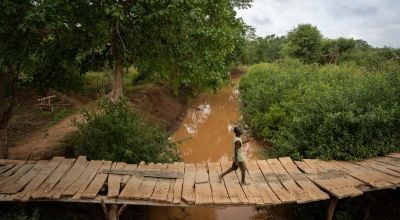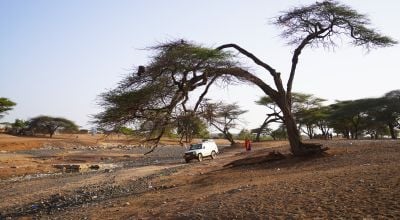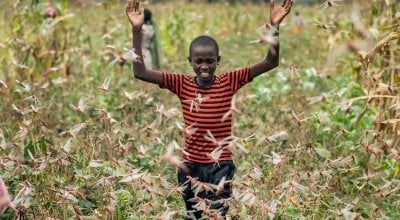
Read our 2023 annual report

Knowledge Hub
Untold refugee stories from Ethiopia
Over the last few years we have seen and heard a huge amount about the western world’s attempts to respond to the global refugee crisis. But far less attention is paid to the countries who are assuming the overwhelming share of responsibility in caring for refugees. Ethiopia is one of many countries offering refuge to South Sudanese people displaced by conflict.
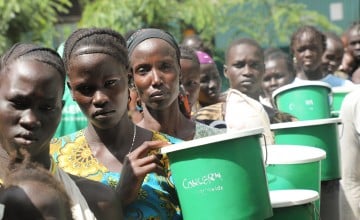
Home to over 380,000 refugees
The Gambella region in western Ethiopia is hosting nearly 400,000 refugees displaced by the on-going civil war in South Sudan, almost doubling the population of the region. The area’s seven refugee camps are almost at the limit of their capacity, but the Ethiopian government are still welcoming refugees across their border and have even opened a new camp in a neighbouring region to accommodate new arrivals.
Concern supported refugee camp
Pugnido Camp 1 is the oldest of the camps in Gambella. It first opened in 1993 when people were seeking refuge from the Sudanese civil war. Since the outbreak of fighting four years ago in the newly independent South Sudan, the camp had to once again open its doors to thousands of people fleeing war.
The camp is coordinated by the Government of Ethiopia’s Administration for Refugee and Returnee Affairs (ARRA) and the UN’s Refugee Agency (UNHCR). Concern Worldwide is one of a number of NGO’s providing humanitarian relief within the camp. I travelled to Pugnido Camp 1 to see first-hand the work that our team is doing there.
More like a village than a camp
It’s a long and bumpy drive from Gambella town to the camp in Pugnido, but it is also a beautiful one. Arriving during rainy season, the scenery was lush with green. As we neared our destination, I expected a noticeable change in our surroundings but I barely noticed we had entered the camp. My idea of a refugee camp consisted of tents, packed tightly together and families crammed in beside one another. I hadn’t considered that this camp, having existed for over 20 years, had the time, space and planning to develop into something much more holistic than that.
The camp looks like a series of villages, and has been planned as such by the coordinating agencies. There are open areas where children can play and each family has their own small compound to call home. Inside their compounds there are no tents, but toucals, which are small thatched roof huts, the traditional houses of the region. And spread throughout the site there are eleven pre-schools, four primary schools, one secondary school and two vocational training centres. A small town centre has even popped up with some enterprising traders setting up shops.
It is an impressive set-up. So much so, that I did not get any real sense of how difficult life really is for the camps residents until I started talking with them and listening to their stories. I quickly came to understand that for the more than 60,000 people who live here, it will never compare to home. Or at least, their home before the war.
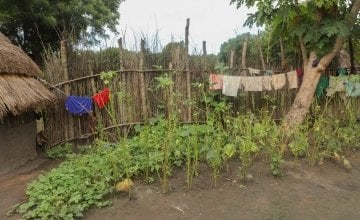
The spirit of survival
At Concern’s nutrition centres we met two incredible young mothers, Nyakoun and Nyawech, who were both raising their children in the camp by themselves. The similarities in their stories were striking – they had both enjoyed happy lives with their families in South Sudan before the war started. They both lost close family members to the violence that broke out and had to undertake a long and dangerous journey to reach safety in Ethiopia. And both were now struggling to provide for their children, facing the horrible reality of watching them go hungry after everything they had been through. And while they each wrestled with feelings of hopelessness, I was left awestruck by the quiet strength they possessed. To have made it this far, and to keep going every day, despite all the uncertainty they faced – they were both survivors.
Ambitions put on hold
Stories of survival and determination were abound in the camp, and few were more striking than those of Nyakuma and Christmas.
Nyakuma is 23 years old. Back in South Sudan, her husband worked and she went to school. Now they are both refugees, and neither of them have any opportunity to earn an income. They have a young baby who they struggle to provide for. She said:
“Back in South Sudan, we had money. We had many things. Now, we are just refugees”.
Nyakuma said she dreams of becoming a nurse. For now those dreams are on hold, until she can return to her home country.
Christmas is 20 years old. Her education was interrupted by the war, but thankfully she is attending school again in Gambella.
“I like to learn”, she told me. “I need to increase my knowledge because I want to become a doctor”.
Nyakuma and Christmas have both been living in the camp since 2014. These bright and ambitious young women – a potential nurse and a potential doctor – have been making the best of what they have for over three years now, all the time just waiting and hoping for the chance to return home, to pick up the pieces of their lives and pursue their dreams.
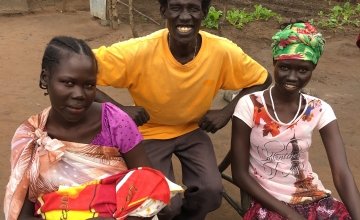
Much’s story
For some, this upheaval was an all too familiar tale.
I met Much Gony on the afternoon of my first day. He spoke English and was helping with translation. The first thing I noticed about Much was his fabulous hair. When I paid him the compliment he paid one straight back. His warmth and friendliness put everyone at ease straight away.
After the second day spent in Much’s company, I learned that this wasn’t his first time living as a refugee. His world had been turned upside down once before, when he was only ten years old. Back then it was the Sudanese civil war that drove him from his home. And then, as now, it was Ethiopia where he went to seek refuge.
Thankfully, Much was able to continue his schooling in the refugee camp he called home for six years. He left that camp at the age of just 16, and eventually went on to university in Gambella. Illness cut his studies short however, and he was forced to drop out after just one year. He returned to Sudan to vote in the country’s independence referendum and finally returned to his home in South Sudan as it became a newly established independent country.
His years of study paid off when he started working for an international NGO as a case worker in child protection, a job he treasured and thrived in. He was helping to reunite children with the parents and families they had become separated from during the war.
“I loved that job. We were helping children who were suffering”.
History repeating
Much also spoke fondly about his wife Nyahoth, and the happy life they were building together, with a baby on the way. But the story was tinged with sadness as we both knew what was coming next. In December 2013, civil war broke out in South Sudan and just like that, Much’s life was shattered once again. He had to flee the country almost immediately, as educated people were amongst those being specifically targeted. He found himself back in Gambella, a refugee once more.
He has been there for four years now. The baby that he and his wife were expecting is now a three-year-old boy, Isaiah. Much is growing increasingly frustrated with not being able to provide for his wife and his little boy and plans to return to South Sudan. But he needs to save money to make the journey back and income earning opportunities are difficult to come by for refugees living in the camp. So for now, he is stuck where he is.
I was almost relieved to hear he did not yet have the money to travel because I didn’t want to imagine the dangers he would face in going back. But it was equally heart-wrenching to think about the frustration he must feel, to be uprooted from everything he had worked so hard to achieve and to watch his family struggle.
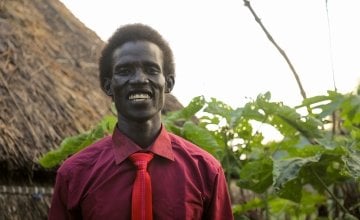
Hope in refuge
Maybe the most remarkable thing about Much was his positivity and good humour in the face of so much adversity. He has never stopped planning his next move and he has never given up hope.
Hope was a recurring theme in every story that we heard. It is hard to imagine how any of the refugees I met would survive from one day to the next if they didn’t have some belief that things could get better. An essential part of what drives that hope is the safe refuge they have been offered in Ethiopia, and the support they are receiving from Concern and other agencies. Without either, they would have nothing and nowhere else to go.
As the global refugee crisis continues to grow, countries like Ethiopia are leading by example, despite dealing with their own challenges and stretched resources. We can all play a part by giving them the support they need.
Donate today
You can offer hope to families who have been displaced by war.



